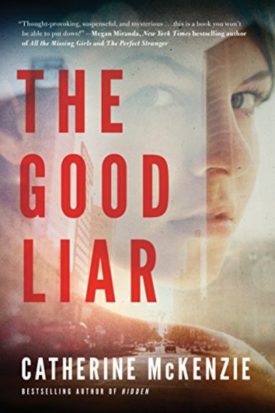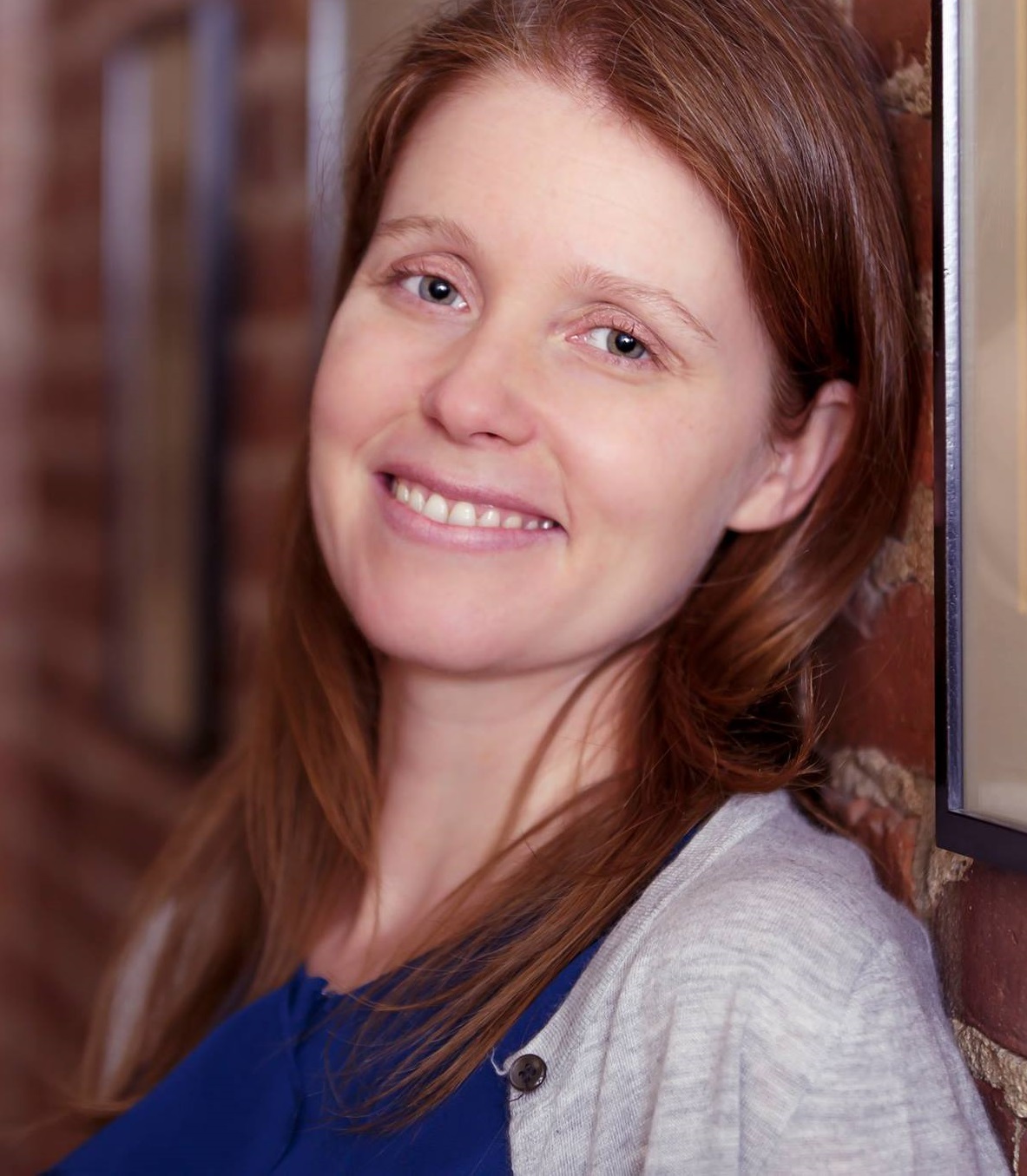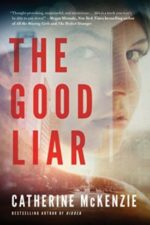 I’m thrilled to welcome best-selling author Catherine McKenzie back to Colloquium! Catherine is the author of eight acclaimed novels, including her most recent, The Good Liar, named one of the 40 hottest thrillers of 2018 by Goodreads.
I’m thrilled to welcome best-selling author Catherine McKenzie back to Colloquium! Catherine is the author of eight acclaimed novels, including her most recent, The Good Liar, named one of the 40 hottest thrillers of 2018 by Goodreads.
The Good Liar is the story of three women whose lives are inalterably changed after an explosion destroys a downtown Chicago building. Cecily was outside and witnessed the building fall — with her husband and best friend inside. Kate ran thousands of miles to escape the aftermath . . . and hopes the truth will never be found out. Franny watched the news footage with the knowledge that the birth mother she had been searching for was in the building when the explosion ripped through it. Like Kate, Cecily and Franny are guarding secrets as the one-year anniversary of the tragedy looms. Deemed “t]hought-provoking, suspenseful, and mysterious” by The New York Times, The Good Liar examines the ways in which the women’s lives intersect and just how far each will go to protect her secret.
Theft By Finding
I’m not the first to say it, but being a writer can sometimes be a peculiar profession. The things one Googles, for instance (it’s research, NSA!), and the thoughts that can creep into your head at the worst moments while you’re in the middle of living. Or worse, when others are in the middle of dying.
Years and years ago an idea popped into my head. It was an interesting idea -— to me at least —- and we writers guard our interesting ideas. They don’t happen every day, you know, so when they do, it can be an exciting moment. Only this idea -— what if someone used a national tragedy to disappear -— came to me on day two or three of the 9/11 coverage, when family members began pinning pictures of the missing to that chain link fence. You know the one. You were probably watching that same coverage and thinking how sad it was, because it was sad. I was thinking that, too, but there was also that nagging thought, prompted by one of those weird little life coincidences that happens sometimes, because someone close to me stood on the top of the World Trade Center two weeks before the bombing. Or, at least, that’s where he told me he was going to be. How did I know? How did anyone know? And then there were all the people being interviewed who were supposed to be on this plane or that . . . Ack, what the hell was wrong with me?
The moment passed, but the thought lingered. I mean, it must’ve happened sometime in the course of history, right? I couldn’t be the only one who thought this way? And if I was, what did it say about me?
No writer should ask themselves that question, let me tell you.
Years later, I heard a story on the news about a man who’d abandoned his family and then returned twenty years later. I don’t remember all the details now, but that sparked something, too. It reminded me of my earlier thought and added others. It was sticky, that story, it stuck with me. Because: who would do such a thing? But also: how did they get away with it? Could I write about that? Where did that story go?
I like to tell myself that these types of questions are one of the things that make writers writers. You take something from life -— maybe yours, maybe someone else’s -— and you make it into art. It’s what painters do -— freezing a face on a frame forever (who is Mona Lisa, anyway?). Do they think they’re nuts? Well, Van Gogh for sure, he was crazy, but in general, no. Still, though . . .
Then I was watching a documentary about a high school football team. They had an historic season, went right to the State finals and won. But the filmmaker couldn’t have known that when he started production or pitched the idea or raised the money. Nor could he have know about the kid from the wrong side of the tracks who would turn his life around. Or the kid from the right side of the tracks who’d descend into drugs. But he was there to tell a story, so he was hoping these sorts of things would happen — he must’ve been. And I thought that this was maybe worse: following someone’s life hoping something bad would happen was definitely worse than simply taking a leap from a real event into my imagination.
Right?
It’s so hard to know. Every major thread in The Good Liar is somehow connected to 9/11 because the genesis of the idea for each of its threads is something connected to that event and its aftermath. When I first pitched the idea to my agent, she was worried it was exploitative of 9/11. I protested. What about Extremely Loud & Incredibly Close? What about The Goldfinch? Not that I was in the same league as those writers, but surely, it had been enough time for someone to write about something similar?
We bandied back and forth about it. I didn’t want to exploit the survivors and families of the victims. But I also didn’t want to abandon this idea. Is that the definition of exploitation? Probably somewhere. Probably yes.
So I made changes. I set the book in Chicago. I made the tragedy an accident, and I tried not to steal imagery from that fateful day. And then I made it, in part, about a film. One of the main characters is shooting a documentary set a year after a large gas explosion tears down a building. He’s following several families who lost people in the tragedy. That’s right; I put the exploiter right there in my story to distract from what I was doing. It’s something I often do. If I name a flaw, you might not notice the flaw.
That’s the theory, anyway.
I can see all the flaws in my work. And though writing is an act of faith —- an act of hubris, even -— there’s also a vampiric quality to it. When my husband was reading a late draft, I heard him laugh. When I asked him why he was laughing, he mentioned a characteristic of a character that shared something with him. I hadn’t even remembered that I put that in there, and that’s part of the trouble with writing. When you think of that perfect line, or that perfect description, sometimes it’s hard to tell whether it’s memory or talent that’s showing up on the page. (Like that line right there. I think I made it up, but just in case, I’m pointing it out.)
Publishing a book is an odd experience. I wrote The Good Liar in 2016, and edited it in the first half of 2017. It was “done” months before it was released. And now it sits in the hands of readers. Every time someone mentions a “9/11-like event” I hold my breath. Is this the review that’s going to call me out? Tell me I didn’t do my research? That I’m profiting off of someone else’s pain?
Life is pain. I do know I stole that —- from The Princess Bride, to be exact. And writing is pain too, the cataloguing of it, the transposing. Does it make a difference if it’s mine or someone else’s? Of course I get that it does, but in the selfish way of writers. By this I mean: the characters in the book are mine, “people” I invented. If you think they could be real -— if you “like” them or don’t, for example —- I win. I did my job. Once the book is done, I release them and then they are free to do what they want out in the world. They can make you feel good or bad or angry or sad or nothing at all.
And me? I’m pointing out my flaws.
Meet Catherine

Catherine McKenzie was born and raised in Montreal, Canada. She graduated from McGill University and McGill Law School, and is a partner in a litigation firm in Montreal.
Catherine’s novels, Spin, Arranged, Forgotten, Hidden, Smoke, and Fractured were all bestsellers, translated into numerous languages, including French, German, Portuguese, Polish, Turkish, Slovakian and Czech. Smoke was named one of the Top 100 Books in 2015 by Amazon and one of the Best Books of October 2015 by Goodreads, while Fractured was named one of the Best Books of October 2016 by Goodreads. In November 2016, Catherine’s first book writing as Julie Apple (the protagonist in Fractured), The Murder Game, was released. Spin has been optioned for a television series and a short film of Arranged was released in 2014 and won a Canadian National Screen Institute Award. Catherine enjoyed being on set during filming, citing it as one of the highlights of her writing life.
Published April 3, 2018, The Good Liar is quickly achieving best-seller status and amassing glowing reviews.
When not writing or practicing law, Catherine is an avid skier and runner, and climbed the Grand Teton in 2014.
Connect with Catherine on her website, Facebook or Twitter.


















2 Comments
I just finished the Good Liar and am in awe at this writer’s cleverness.
On my reading list.